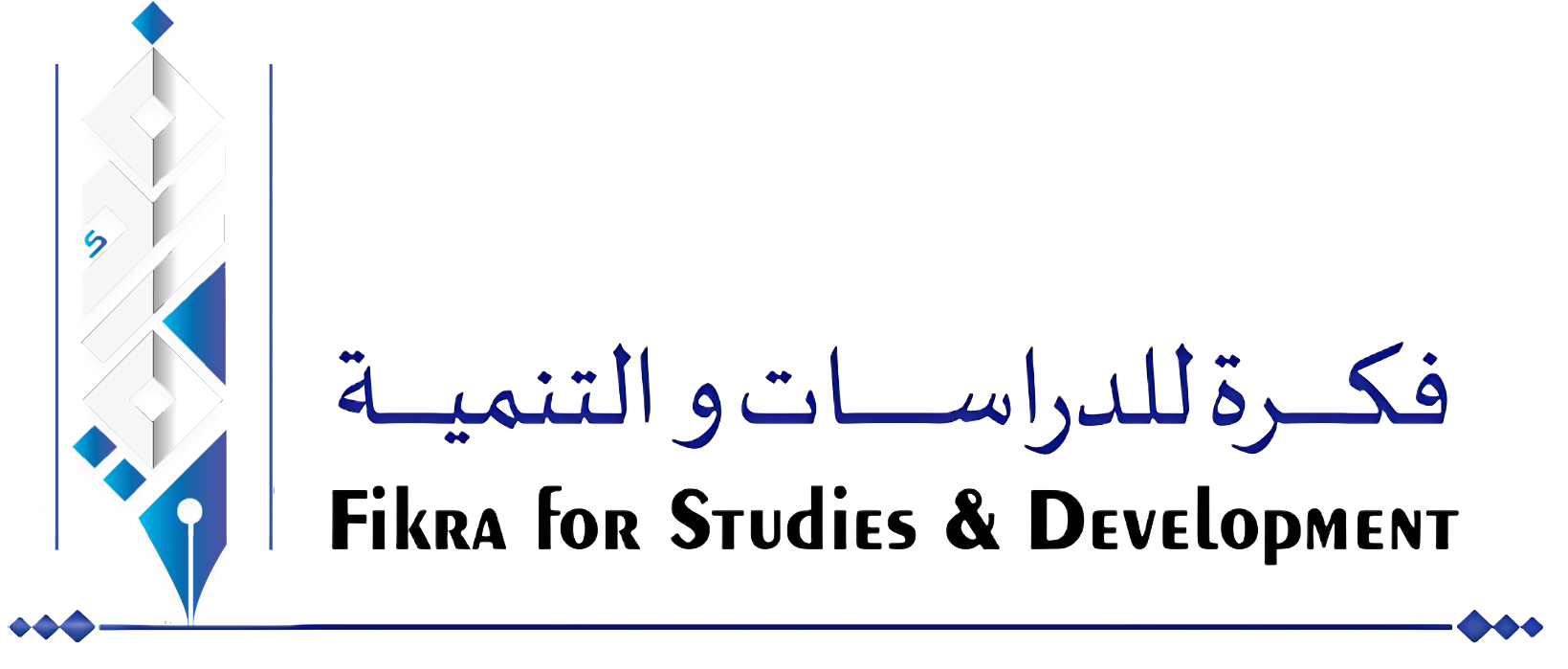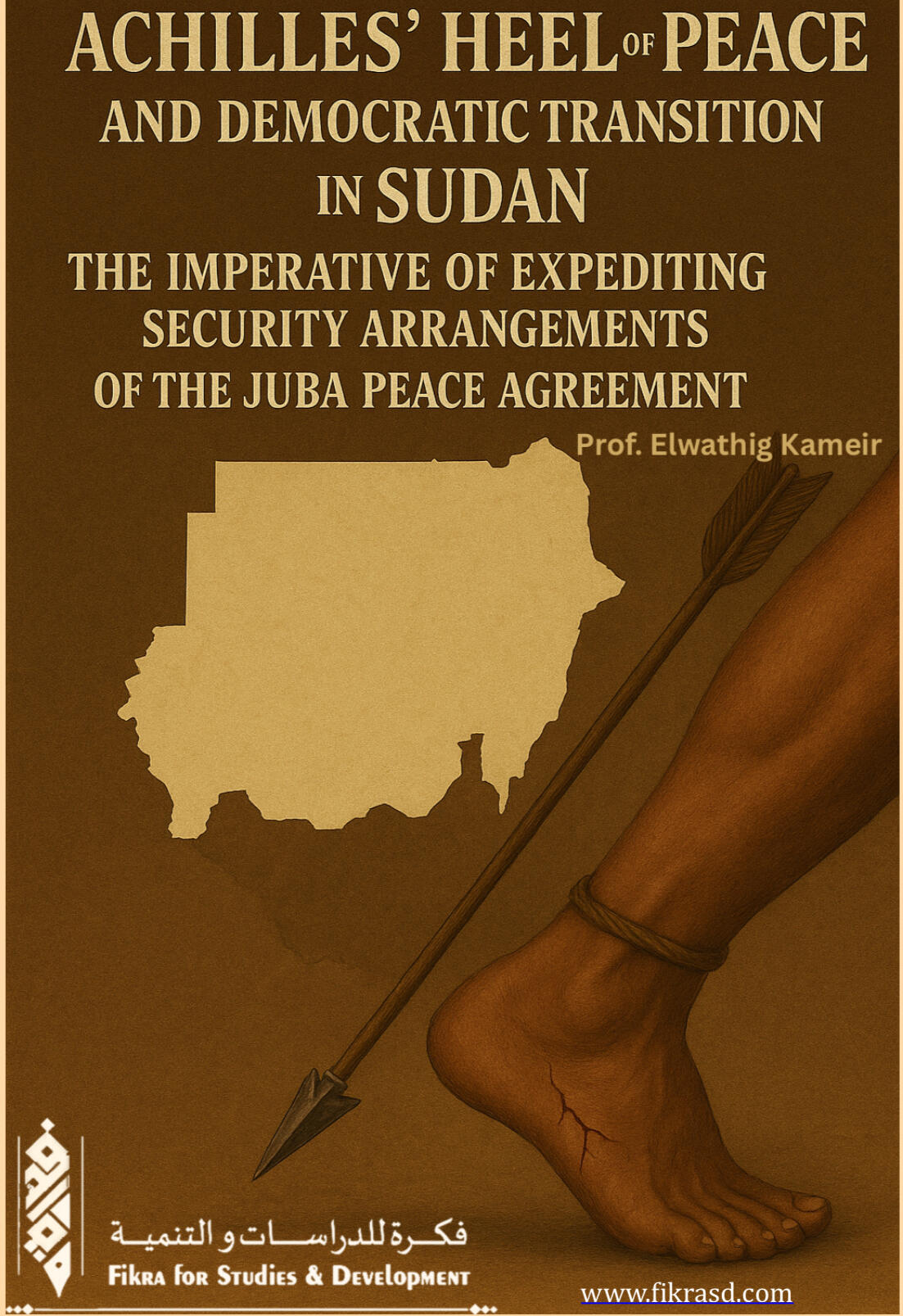The Achilles’ Heel of Peace and Democratic Transition in Sudan: The Imperative of Expediting Security Arrangements of the Juba Peace Agreement!
The Achilles’ Heel of Peace and Democratic Transition in Sudan: The Imperative of Expediting Security Arrangements of the Juba Peace Agreement!
Elwathig Kameir
Kameir@yahoo.com
Cairo, 19 July 2025
Introduction
When peace negotiations commenced in Juba in mid-October 2019 between the delegation of the Sudanese government on one side, and the delegations of the Sudanese Revolutionary Front, and the Sudan People’s Liberation Movement-North on the other, I published an extensive article in December 2019 titled “Security Arrangements: The Achilles’ Heel of Peace and Democratic Transition!” (Sudanile, 10 December 2019). The central thesis of the article posited that, beyond the challenges of reaching a peace agreement on political and humanitarian issues at the negotiating table, security arrangements constitute the cornerstone and litmus test of the peace equation, as well as the Achilles’ heel of democratic transition. These arrangements, when agreed upon and implemented through a clear matrix, pave the way for strengthening a unified national army, while their neglect obstructs any earnest attempt to achieve sustainable peace.
Comprehensive security arrangements are the key to ensuring security and stability across the nation and facilitating the safe return of displaced persons and refugees to their homes. Subsequent political developments and historical precedents have validated this thesis.
In this brief intervention, I argue that the recent disputes over the power-sharing allocations for the Juba Peace Agreement (JPA) signatories—particularly the controversy surrounding their 25% quota—have strained the military alliance between the army and the joint forces of the armed movements. In light of this, there is an urgent need to accelerate the implementation of the security arrangements outlined in the JPA.
It is critical to distinguish between political arrangements, such as power-sharing negotiations—a fundamental right and natural aspect of forming coalition governments—and security arrangements for integrating armies, which are an agreed-upon matter and a cornerstone of long-term structural reform. (In a subsequent article, I will address the challenge of negotiating security arrangements with the faction of the Sudan People’s Liberation Movement-North (SPLMN) led by Commander Abdelaziz Al-Hilu, and the prospects for reaching a peace agreement).
Security Arrangements of the JPA:
Delays in Implementation
The Juba negotiations between the transitional government and several armed movements (notably the Sudan Liberation Movement-Minni Minnawi, the Justice and Equality Movement-Jibril, and the Sudan People’s Liberation Movement-North-Agar) culminated in December 2019 with a “Declaration of Principles” governing the negotiation process, which prioritized security arrangements as a key agenda item. By October 2020, negotiations on security arrangements concluded with an agreement stipulating: 1) the formation of joint forces under the name “National Forces for Sustaining Peace in Darfur,” and 2) the gradual reintegration and demobilization of armed movement forces over a 39-month period, divided into three phases.
However, following the formation of the second cabinet of the transitional period in February 2021, which included the JPA signatories, dissatisfaction emerged among the parties regarding the slow pace of implementing the agreement on several issues. By May 2021, heated statements and accusations surfaced from leaders of the armed movements participating in transitional institutions, alleging that the government, particularly its military component, had failed to fulfill its obligations under the security arrangements protocol. Five leaders of the armed movements issued a joint statement holding the military component accountable for the potential collapse of the peace agreement due to the failure to implement security arrangements. They attributed this to the government’s procrastination in establishing required mechanisms, delays in forming the joint force, inadequate logistical support, and a lack of serious steps toward reforming security institutions at all levels. In response, the armed forces countered these accusations. The media advisor to the Commander-in-Chief of the Armed Forces at the time stated, “It is not productive to discuss security arrangements through newspapers and various media outlets, as this is a sensitive issue involving individuals and forces on both sides of the negotiations, whether governmental or armed movements.” He emphasized that building forces and implementing security arrangements cannot tolerate media interference or harmful publicity during this critical historical juncture (25 May 2021, Sudania 24 TV).
Two critical questions remain unanswered: First, what is the impact—if not the role—of the Rapid Support Forces (RSF) as a separate entity in obstructing the security arrangements process? Second, has the polarization and rivalry between the two governmental military factions (the army and the RSF) slowed this process?
At the time, political divisions among transitional governance partners (military vs. military, civilian vs. civilian, and military vs. civilian), coupled with the absence of a unified decision-making center and a shared vision for the transition, paved the way for the “partnership dissolution” coup on 25 October 2021. This exacerbated tensions and deepened polarization among transitional governance partners, their political and military components, and the JPA signatories, as well as between them and other political adversaries, including Islamists and the various other parties and organizations who were not part of the partnership arrangements. These developments prompted international and regional intervention (by the United Nations, African Union, and the Quad), leading to the draft “Framework Agreement” signed on 5 December 2022. However, this agreement did not reach its conclusion or final signing, particularly after the collapse of the security and military reform workshop and the fierce opposition from political, societal, and armed movement groups, culminating in the outbreak of war on 15 April 2023.
In my view, the Framework Agreement reduced security and military reform to a mere division of official military power between the army and the RSF, completely sidelining the armed movements and ignoring comprehensive security arrangements, deeming them irrelevant to the agreement and associating them solely with movements perceived as supporters of the 25 October 2021 coup.
Urgent Need to Accelerate Security Arrangements
Amid these turbulent political and military conditions, mutual accusations between Juba Agreement movements’ leaders and the pro-Sudanese army media subsided, as did general attention to security arrangements. However, the armed movements’ stance toward the warring parties reignited interest in this issue. With the outbreak of war between the army and the RSF militia, most armed movements (except the Sudan People’s Liberation Movement-North-Agar) declared neutrality, and Darfur’s four main movements (Sudan Liberation Movement, Sudan Liberation Movement-Transitional Council, Justice and Equality Movement, and Sudan Liberation Forces Alliance) formed a joint force to protect civilians in the region. Seven months into the war, in November 2023, these movements abandoned neutrality and aligned with the Sudanese army. Consultations between the movements and army leadership, including a meeting on 4 September 2023 between the Darfur Regional Governor and the army’s Commander-in-Chief, underscored the importance of implementing security arrangements to ensure sustainable peace and stability. The agenda likely included discussions on restructuring and expanding the joint force’s objectives, previously limited to maintaining security and protecting civilians under the Juba Agreement, to now fight alongside the army against the RSF militia across all fronts.
Politically, while many Sudanese expressed dismay at the movements’ initial neutrality, their alignment with the army was widely welcomed by various political and societal forces. Nonetheless, recent months have seen mounting criticisms and accusations that the movements’ support for the army was driven by ambitions for power and preserving ministerial positions for narrow partisan (and tribal) interests, as evidenced by their role in obstructing the formation of the newly appointed prime minister’s cabinet. Some political and societal forces have called for the cancellation of the Juba Agreement, arguing that its 39-month term has expired. To counter these accusations and dispel doubts about their motives, joint force movement leaders have emphasized in recent months that their forces seek integration into the Sudanese military institution and reject incorporation into the RSF militia. Echoing earlier tensions following the formation of the second transitional government in 2021, movement leaders, including Commander Minni Arko Minnawi (15 March 2025), have accused “certain hands” of obstructing security arrangements. With the appointment of a new prime minister and efforts to form a government, disputes have resurfaced between political factions and among Juba Agreement signatories (notably between the Sudan Liberation Movement and Justice and Equality Movement versus other movements and the northern and central tracks of the agreement). These disputes center on competing interpretations of the Juba Agreement’s provisions for power-sharing allocations, particularly ministerial portfolios.
The greatest concern arising from these conflicts is their potential to destabilize the military situation, risking new armed conflicts that could weaken the state and hinder the goal of building a unified national army—the primary objective of security arrangements. More dangerously, some competing political forces may exploit these disputes to form a political alliance between the armed forces and their allies, while certain civilian political groups may attempt to revive the flawed concepts of “political partnership” or “government incubator.” If reports of a resolution to the ministerial quota dispute through consensus among peace process parties and the government are accurate, this is a step in the right direction, strengthening the Juba Agreement and ensuring government cohesion. In my view, given the current complexities—far greater than those at the time of the Juba Agreement—the army and armed movements must jointly expedite the implementation of the JPA’s security arrangements protocol, moving beyond mutual accusations of deliberate obstruction to enhance the credibility and sincerity of both parties. The presence of the RSF as an independent entity in the transitional governance equation, given its historical relationship with the armed movements, likely created apprehensions that deterred these movements from engaging in security arrangements—a concern that is no longer relevant.
However, the call to accelerate security arrangements must not overlook or minimize the formidable challenges of implementation. The Juba Agreement entails complex structural and procedural requirements, including numerous oversight, sectoral, grassroots, state-level, technical, and humanitarian committees tasked with monitoring violations, resolving disputes, enforcing ceasefires, monitoring weapons and assets, and delivering humanitarian aid. These tasks, integral to achieving a permanent ceasefire and final security arrangements, require international contributions to committee memberships, third-party mediation, and involvement of parties that facilitated and guaranteed the negotiations. Article 9.11 of the agreement explicitly states that “both parties shall work together to seek necessary technical, material, and financial assistance from the international community for the successful implementation of the cessation of hostilities for humanitarian purposes, permanent ceasefire, disarmament, demobilization, reintegration, and peacebuilding.” This poses a significant challenge, particularly given the political changes following the 25 October 2021 coup and the war’s outbreak in April 2023, compounded by some Juba Agreement movements aligning with the army and others with the RSF militia. These factors have likely diminished the international community’s willingness to fund these complex measures. Consequently, the burden falls on the armed forces’ leadership to address this challenge by leveraging national resources and capabilities, rather than relying on international support under the pretext of resource scarcity, which risks indefinitely postponing security arrangements and potentially sparking new armed conflicts.
Conclusion
I conclude by asserting that the success and sustainability of peace hinge, on one hand, on the transformation of armed resistance movements into civilian political organizations participating in comprehensive general elections at the end of the transitional-constitutive period. Failure to do so risks repeating past experiences of holding incomplete elections while leaving peace negotiations to an elected government, perpetuating a vicious cycle. On the other hand, peace also depends on the armed forces’ leadership’s readiness to integrate new recruits into the Sudanese military following a permanent ceasefire and comprehensive security arrangements that include non-signatory armed movements and all armed factions, including the RSF. Such arrangements would establish a unified national army as the sole legitimate institution monopolizing force, protecting the nation within a robust, comprehensive plan for reforming the entire security and military sector.


